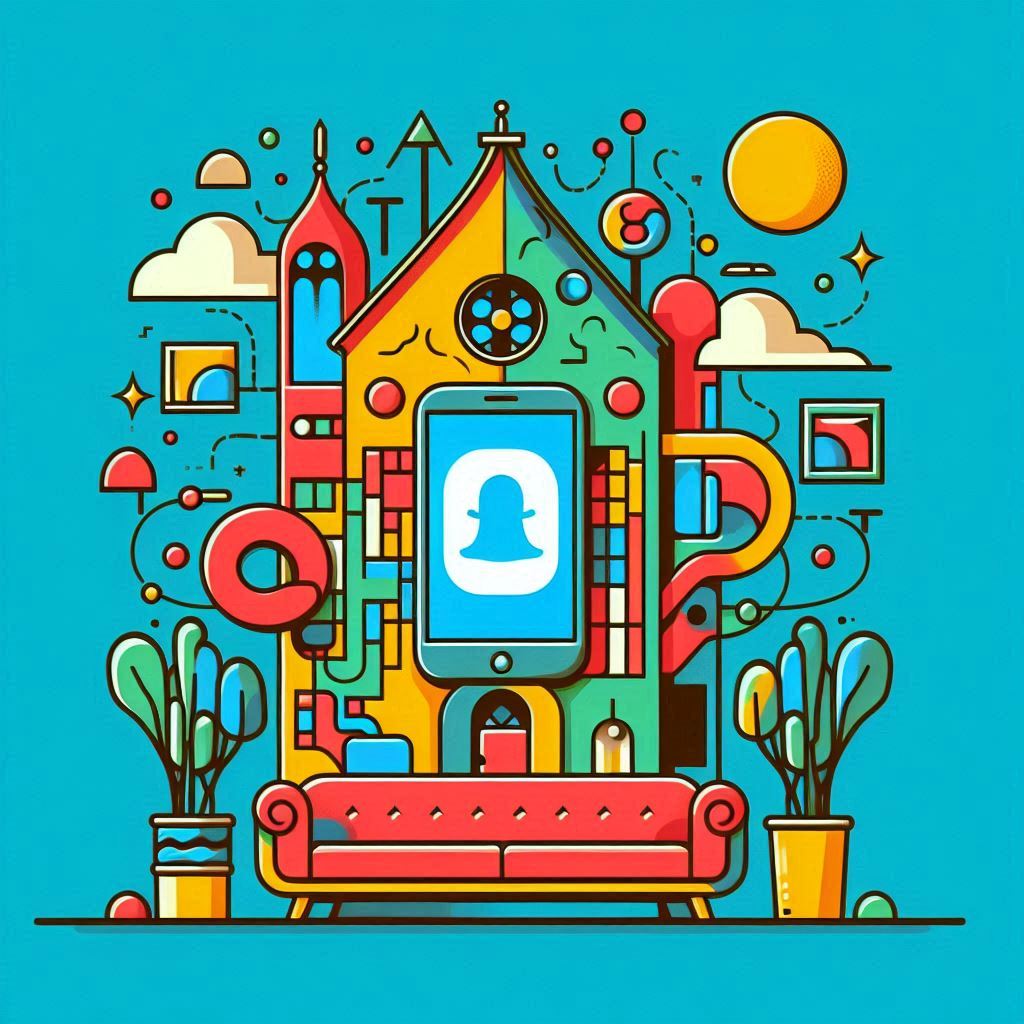Shared Economy Tools for Daily Use
Are you tired of buying tools and equipment that you only use occasionally? Many people feel the same way. The shared economy has changed how we access and use everyday items. It’s now easier and more affordable to get what we need without owning it. Shared economy tools transform daily life, from power tools to kitchen appliances. Find out how these tools can make your life simpler and more convenient.
Essential Sharing Economy Platforms for Earning and Saving
Ridesharing Solutions

Ridesharing solutions offer users the benefit of cost-effectiveness and convenience for their transportation needs. By connecting drivers and passengers through an app, users can easily find affordable rides and reduce their reliance on personal vehicles.
Additionally, ridesharing services reduce environmental impact and traffic congestion by promoting carpooling and reducing the overall number of vehicles on the road. This can lead to decreased air pollution and less traffic, improving the overall environmental quality of urban areas. However, potential challenges and risks associated with ridesharing services include issues related to passenger safety and personal privacy, as well as the financial uncertainty of income for drivers. Users must also consider potential insurance coverage gaps and the legal implications of using their vehicles for commercial purposes when engaging in ridesharing activities.
These factors represent essential considerations for individuals seeking ridesharing solutions for their transportation needs.
Home-Sharing Services

Home-sharing services let people rent out their personal spaces for extra money. They can rent a room or a whole property. This helps them make money from assets they don’t use much. It also links hosts directly with guests so that they can talk about terms and prices without a middleman.
The services have safety measures like user verification and secure payments. They also have reviews to help with safety. Tax, insurance, and agreement rules vary by location to keep everyone safe.
Renting Personal Spaces

Renting personal spaces through sharing economy platforms has many benefits. You can earn extra income, connect with a global network of potential guests, and decide on pricing and availability. To do this, individuals create a listing with details about the space, set house rules, and upload photos. When renting, verifying guest identities, communicating through the platform’s messaging system, and reviewing the insurance and liability coverage offered are important.
Peer-to-Peer Car Rentals

Peer-to-peer car rental allows individuals to rent their vehicles directly to others through a platform or app. This offers a more cost-effective option than traditional car rentals.
For car owners, this can be a way to generate extra income by using an underutilized asset. On the other hand, renters can benefit from a wider range of vehicles and more competitive pricing.
Safety measures for peer-to-peer car rentals include driver verification, vehicle inspections, and review systems. These ensure the reliability of both owners and renters.
Some platforms offer insurance options to cover potential damages or accidents during the rental period. This provides peace of mind for both parties involved in the transaction.
Collaboration in the Gig Economy
Platforms for Finding Freelance Work
The sharing economy is growing, with more people looking for freelance work. There are many platforms to explore for this kind of work. These platforms help people connect and find jobs such as ride-sharing, renting accommodations, renting vehicles, providing dining experiences, childcare, and pet care.
There are also specialized apps for making money through lending, renting out assets, and short-term rentals. These apps cover various services, from renting out rooms to transportation services, tutoring, and sharing resources in different industries. This variety of platforms shows the many opportunities for freelance work in the sharing economy.
Task-Based Labor Marketplaces
Task-based labor marketplaces have a big impact on traditional employment. These platforms offer various tasks for people to earn money, providing an alternative to regular jobs. Tasks include ride-sharing, short-term rentals, lending, pet care, and home maintenance.
This variety gives individuals many options to use their skills and assets, promoting flexibility and control.
The flexibility of these platforms benefits both employers and workers. Workers can choose tasks based on availability and priorities, improving their work-life balance. Employers can access a larger pool of talent without long-term commitments, allowing them to scale their workforce as needed.
Ultimately, task-based labor marketplaces change traditional employment by offering a more flexible approach, helping workers and employers adapt to changing market demands.
Specialized Sharing Services
Peer-to-Peer Fashion and Accessory Rentals
Peer-to-peer fashion and accessory rental platforms have a lot of benefits for consumers:
- They give access to a wide variety of clothing and accessories at a lower cost than buying new items.
- Users can try out different styles and trends without making a big commitment, which is better for the environment.
When people participate in these rental services, they help lower textile waste and the fashion industry’s overall impact on the environment. Renting and sharing clothing makes it last longer and reduces the need for new production, which decreases the industry’s carbon footprint.
But, there are some challenges and risks involved:
- Users might worry about the cleanliness and quality of the items they rent.
- Figuring out the shipping and return process can be tricky and might cost extra. There’s also a risk of being delivered late or lost.
Educational Exchange Platforms
Educational exchange platforms allow users to share their knowledge and skills with others. Users can offer tutoring, mentorship, or skill-sharing opportunities. They can access various educational resources by connecting directly, promoting collaboration and learning. These platforms challenge traditional education methods by providing alternative avenues for knowledge acquisition.
Child and Pet Care Sharing Apps
Child and pet care-sharing apps connect caregivers with people who need their help. Users can make profiles and list their services on these platforms. Caregivers can show their experience, availability, and rates, while those in need can search for suitable caregivers.
These apps usually have safety measures and background checks for all caregivers to ensure the safety of children and pets. This helps verify their identities, qualifications, and potential criminal history. Some apps also include user reviews and ratings for further insight into the quality of care provided.
Child and pet care-sharing apps often have integrated scheduling, payments, and communication tools. These tools allow caregivers and clients to arrange bookings, make payments, and stay in touch through the platform. This approach makes things easier for everyone involved and ensures clear and transparent arrangements.
Wellness and Beauty Sharing
People who join the shared economy may share or trade wellness and beauty products and services. These can include makeup, skincare items, hair tools, and services like massages, yoga, or meditation.
Taking part in wellness and beauty sharing can positively impact your overall well-being by giving you access to a wider range of products and services at a lower cost. It also lets you connect with people with similar wellness and beauty goals, creating community and support.
In addition, participating in the shared economy for wellness and beauty can help promote sustainable and environmentally friendly practices by encouraging the reuse and exchange of products and services, which reduces waste and environmental impact.
Financial Collaboration Tools
Investment Sharing Platforms
Investment-sharing platforms connect people looking to invest with those who have funds to invest. This allows individuals to invest in real estate, stocks, or peer-to-peer lending. It creates a broader pool of investors and a collective investment approach. These platforms disrupt traditional investment practices and offer alternative ways to access and manage investments, impacting the conventional investment market.
They also provide diversification and accessibility, offering a range of investment options not available through traditional channels. This inclusive approach benefits individuals seeking to diversify their portfolios and provides opportunities for those without access to traditional investment channels.
Crowdfunding Real Estate Investments
Crowdfunding real estate investments is different from traditional methods. It allows individuals to pool their resources for large projects, giving people access to projects they couldn’t join otherwise. It also helps diversify investments and lower risks compared to owning a property alone.
But, there are risks to consider. These include less flexibility in selling investments, project failures, and unclear regulations. On the flip side, there are benefits like lower investment requirements, diversification, and potential for passive income from rentals or property value increase.
To make informed decisions, individuals should thoroughly research projects, understand associated risks, and seek advice from financial or real estate experts. They should also understand the crowdfunding platform’s investment process, fees, and investor protections.
Technology and Everyday Goods Sharing
Tech and Gadget Rentals
Tech and gadget rentals include smartphones, laptops, tablets, cameras, projectors, and smartwatches. Customers can book rentals online or through mobile apps. They can easily browse options, select their desired tech or gadget, choose the rental duration, and make the booking with a few simple clicks. After the rental period, customers can conveniently return the items through designated drop-off locations, shipment, or pick-up services.
The rental terms and conditions involve rental duration, pricing structure, security deposits, insurance coverage, damage policies, and return procedures. Customers need to review and understand these terms before finalizing their rental agreements to ensure a smooth experience. Tech and gadget rentals effectively cater to the diverse needs of modern consumers in the shared economy space by providing convenient access to a wide range of tech and gadgets, along with user-friendly booking and return processes.
Common Household Item Sharing
Common household items that people can share in a sharing economy:
- Vehicles
- Tools
- Sports equipment
- Living spaces
Technology facilitates common household item sharing:
- Provides platforms and apps
- Connects individuals directly
- Enables renting, selling, or exchanging items with ease
- Offers payment processing and verification systems
Potential benefits of participating in common household item-sharing platforms:
- Generating additional income
- Reducing waste by reusing items
- Promoting a sense of community collaboration
Challenges may arise, such as:
- Thoroughly understanding tax implications
- Potential risks involved in sharing valuable belongings
It is essential for individuals to:
- Seek advice
- Familiarize themselves with the terms and conditions of these platforms before engaging with them.
Web and Technology Assistance Exchanges
Web and technology assistance exchanges in the sharing economy have various platforms and apps. These help people make money.
Delivery and Logistics in the Shared Economy
Sharing economy platforms have significantly impacted the delivery and logistics industry. They’ve brought in new and innovative solutions for last-mile delivery and crowd-shipping.
Peer-to-peer delivery services and collaborative consumption models have risen, creating a decentralized and flexible network of drivers and contractors. This poses a challenge for delivery and logistics companies and an opportunity to optimize their operations by using excess capacity and reducing delivery times.
The sharing economy model can improve efficiency and sustainability in the delivery and logistics sector by using existing resources and reducing empty miles. This can help minimize fuel consumption and greenhouse gas emissions while also offering more cost-effective and environmentally friendly delivery options.
Impact of Sharing Economy Apps on Daily Life
Sharing economy apps have changed how we get around and where we stay. Ride-hailing services like Uber and Lyft offer a convenient, cost-effective, and eco-friendly alternative to taxis and owning a car. This reduces traffic and helps the environment.
Home-sharing apps like Airbnb and Vrbo have also transformed how we find places to stay. They let people earn money from their properties and offer travelers more affordable and unique options.
Other apps like Getaround and Turo allow people to rent their cars to others. Websites like TaskRabbit and Upwork allow individuals to earn money by offering their skills and services. These apps provide new ways to earn and save money.

Vizologi is a revolutionary AI-generated business strategy tool that offers its users access to advanced features to create and refine start-up ideas quickly.
It generates limitless business ideas, gains insights on markets and competitors, and automates business plan creation.


